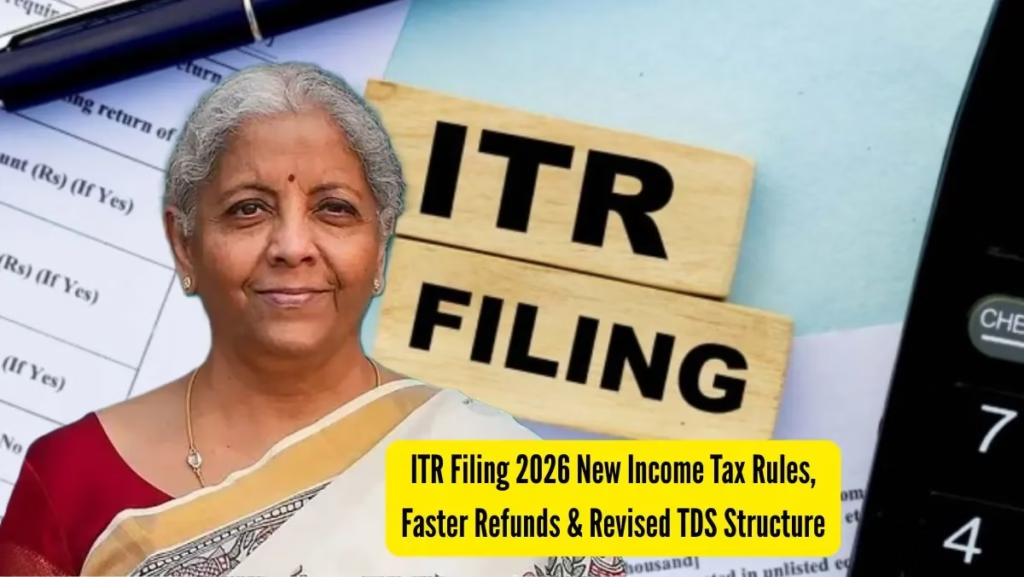ITR Filing 2026: Many of the current regulations that people abide by when submitting their income tax returns (ITRs) will be superseded by the new income tax bill. This has raised a significant question, to which many people are unsure of the answer. To what extent will the current ITR filing procedure change?
Taxpayers have been accustomed to the current slabs, exemptions, and deductions for many years. Could the new bill mean sacrificing some of the previous benefits even though it promises a cleaner, simpler framework? Let’s put this in more straightforward terms for you.
Key changes for filing ITR from 2026
If You Don’t File Your TDS And ITR On Time…
The big news is that the new Income Tax Bill is swapping out some old rules, aiming to make things smoother for taxpayers. One exciting shift is about late filings. If you miss the ITR deadline in 2026, you’ll still get your tax refund. No more losing sleep over penalties! The bill also ditches fines for late TDS (Tax Deducted at Source) statements, which is a relief for small businesses and individuals juggling deadlines
Nil TDS Certificate
If you’ve got no tax liability, maybe because your income’s below the taxable limit—you can apply for this in advance. It stops tax from being deducted unnecessarily, saving you the hassle of claiming it back later. This applies to both residents and non-residents, so it’s great for those with overseas income. I know a family in Chandigarh who used this trick last year and avoided a ₹5,000 deduction—pretty handy! The process should be online, likely through the e-filing portal, so keep an eye out for the updated forms.
Commuted Pension – Relief for Pensioners
The new rules make commuted pension from certain funds—like the LIC Pension Fund—fully tax-free. This levels the playing field, giving private sector employees and independent investors the same break as government staff.
Certain notified pension funds, such as the LIC Pension Fund, will now offer completely tax-free commuted pensions. Employees of the private sector and those who have made independent investments in such funds will receive the same relief as salaried government employees thanks to the bill’s explicit provision of this deduction.
Changes in Property Tax Rules
The standard deduction of thirty percent will still apply to income from residential property. Relief from home loan interest payments is also kept at the same time. The goal is to make property ownership more financially manageable by providing homeowners with consistent tax benefits.
Your house property income still gets a 30% standard deduction, and relief on home loan interest stays intact. This keeps property ownership affordable, especially with interest rates climbing—SBI’s now at 8.70% for home loans.
ITR Filing 2026 Highlights
| Aspect | Details |
| New Bill Start | 2026 |
| Late ITR Refund | Still eligible despite delay |
| Nil TDS Certificate | Available for zero tax liability |
| Pension Relief | Commuted pension tax-free |
| Helpline | 1800-103-4455 (Income Tax) |
Points To Remember When Filing Your 2026 ITR
It’s crucial to remember that neither the overall structure nor the tax slabs have changed. Court-decided definitions and tax rates will remain the same. The new bill’s primary goals are to simplify the law and cut down on the time and effort required to file returns.
the tax slabs and overall structure aren’t changing. The rates and court-decided definitions remain the same, so your tax bracket won’t shift. The goal here is to streamline the process, less paperwork, quicker filings.

